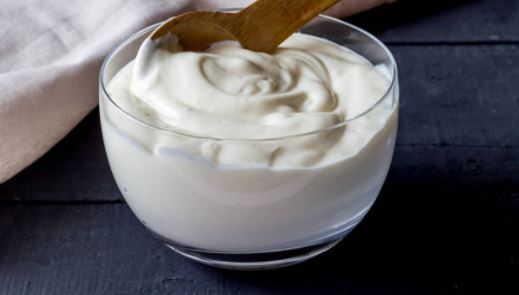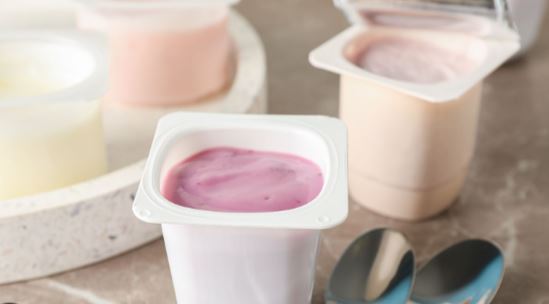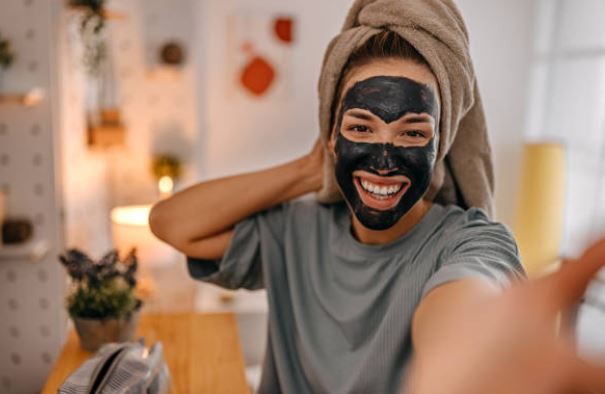Lifestyle
9 benefits of using yogurt on your face

From thick, luxurious Greek yogurt to bottles of silky drinking yogurt and everything in between. It seems a lot of folks love yogurt in some form — fro yo, anyone?
This fermented dairy product is super nutritious, as it’s packed with protein, probiotics, and bone-building calcium. Plus, it’s versatile.
Not only can you use yogurt in sweet recipes, but it can also star in dips, marinades, bread, condiments, and curries.
But what about other uses? Advocates of yogurt claim it actually has health and beauty benefits for your skin as well.
Here are a few potential benefits of using a yogurt face mask.
1. Moisturizes
Yogurt is a rich source of protein and fats, hence its delightfully silky texture. In a 2011 study looking at yogurt face masks, researchers performed test-tube studies of yogurt’s biological activity and applied yogurt to the participants’ faces. They found that yogurt may reduce water loss from the skin. In other words, it locks in moisture.
2. Brightens
In the same flagship study from 2011, the results also showed that yogurt might brighten the skin. Although the authors do not state how they measured this purported boost in radiance.
3. Increases elasticity
Yogurt face masks seem to be a triple threat, as again seen in the 2011 study, the authors noted that yogurt improves skin’s elasticity. Skin naturally loses collagen as you age, leading to a loss of elasticity. Collagen is the primary structural protein of the skin, and it acts like scaffolding to provide volume, keeping your skin smooth and wrinkle-free. Using a yogurt face mask may help support this elasticity, keeping you looking fine.
4. Combats acne
If you opt for natural yogurt, it’s a rich source of probiotics. These helpful bacteria may combat Propionibacterium acnes, the naughty bacteria that leads to painful, inflamed acne lesions. In a 2015 research review, the authors noted that yogurt probiotics could help manage acne by killing acne-causing bacteria, reducing inflammation, and helping skin maintain a protective barrier.
5. Treats skin infections
As the 2015 research review reported, it seems that yogurt has antimicrobial properties, meaning it may be able to banish harmful bacteria. In addition, seeing as it can help with the nasty bacteria that causes acne, it may help ease other skin infections as well. However, if your skin is infected or broken, it’s best to check with your health professional first to see if using a yogurt face mask is in fact a good idea.
6. Eases inflammatory skin conditions
Also noted in the 2015 research review, yogurt may help ease acne inflammation. Therefore, it’s not too much of a stretch to imagine it could help with other inflammatory skin conditions like atopic dermatitis, eczema, and rosacea. The skin conditions damage the skin’s protective barrier, and yogurt may step in to improve the situation.
7. UV ray protection
The 2015 research review also suggested that yogurt could reduce the damaging effects of the sun’s ultraviolet (UV) rays. However, it seems that the probiotics in yogurt and their metabolites act as antioxidants, neutralizing the harmful effects of free radicals. Yogurt may help create a protective yogurty shield over your skin that protects against free radicals and reduces the risk of sun damage and the resulting marks, spots, lines, and wrinkles.
8. Reduces the signs of skin aging
Protecting against UV rays and helping skin’s elasticity naturally connects to reducing the signs of skin aging.
The 2015 research review noted that the probiotics in yogurt might work to restore healthy skin pH. Healthy skin has a slightly acidic pH of around 4.2 to 5.6, which helps prevent nasty bacteria from making their home on your skin and encourages a moisture-rich environment. However, as people age, skin pH rises, which stimulates protease or protein-eating enzymes, which damage skin’s health. A yogurt face mask may help keep this process in check.
9. Evens skin tone
Tons of peeps have uneven skin tones, as in blotchy, patchy, hyperpigmented, red or discolored areas. But don’t worry, as the 2015 research review suggested, yogurt and its lineup of probiotics may help even things out.
Which type of yogurt is best for your face?
Choose a natural probiotic yogurt that contains live bacteria benefits from their health-boosting perks.
It’s best to go for a flavor-free option as seeds, pieces of fruit, and other added ingredients may interfere with the application.
A great tip is to use full-fat Greek yogurt, so it’s full of moisturizing goodness and thickener to stick to your face and not run down your neck.










